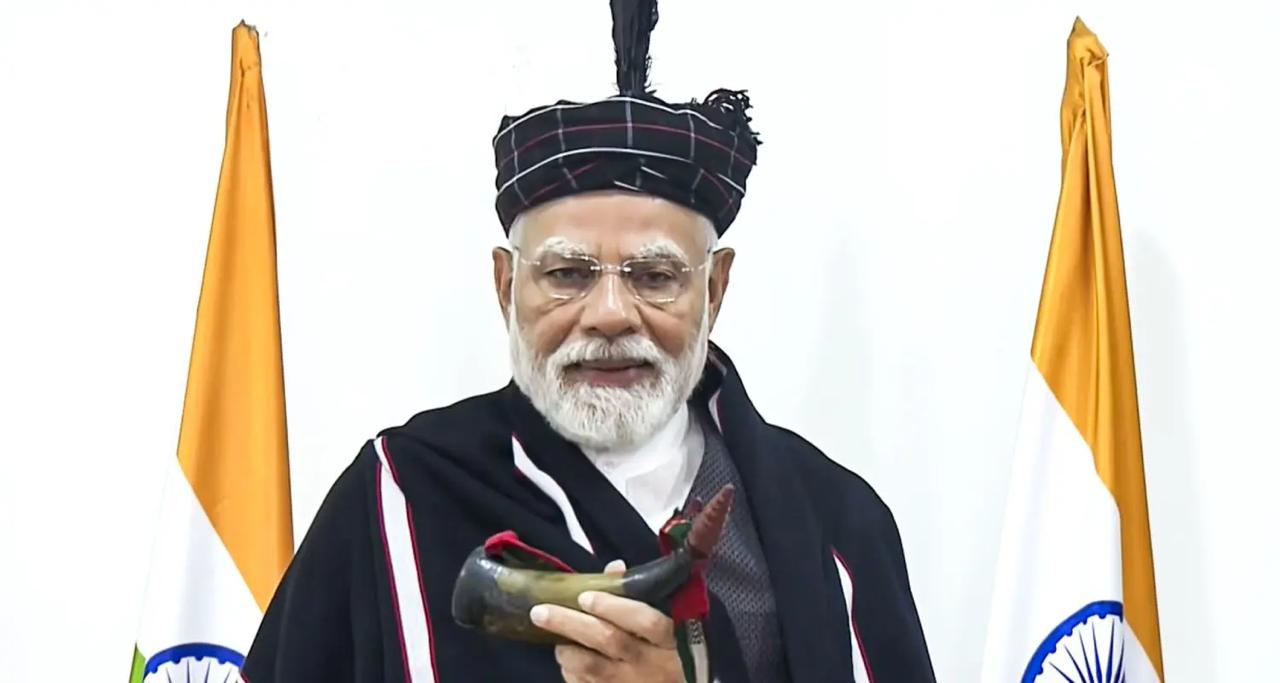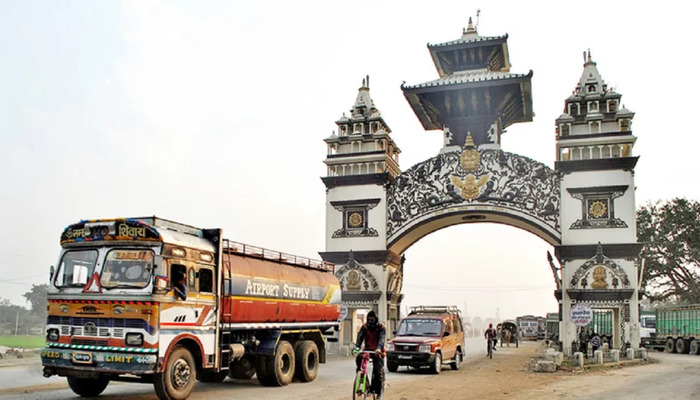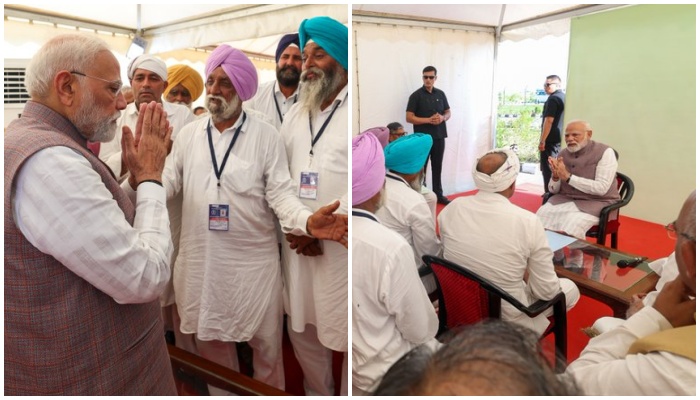Assam tightens immigration rules, district officials can deport suspected illegal infiltrators within 10 days if they fail to prove citizenship under new SOP
If anyone is caught on suspicion of being an illegal infiltrator in Assam, he will now have just 10 days to show proof of his Indian citizenship. Chief Minister Himanta Biswa Sarma announced this on Tuesday, 9th September, after the state Cabinet meeting in Guwahati. He also revealed that Assam has already deported 30,128 infiltrators to Bangladesh so far. The Assam Cabinet has approved a new Standard Operating Procedure (SOP) to deal with the long-standing problem of illegal infiltration. Sarma said this move is a “big and historic step” to push back intruders and safeguard Assam’s cultural identity and demographic balance. The new SOP has been brought under the Immigrants (Expulsion from Assam) Act, 1950. It gives more power to the local administration. According to CM Sarma, “Now we don’t have to go to court every time. The District Commissioner can directly identify infiltrators and issue orders for their expulsion or deportation.” ASSAM HAS PUSHED BACK 30,000+ ILLEGAL IMMIGRANTS TILL DATE pic.twitter.com/QhBxe1fTF1— Himanta Biswa Sarma (@himantabiswa) September 9, 2025 This means that earlier, every suspected case had to go through the Foreigners’ Tribunals, which led to huge delays. But now, the administration can act much faster and more directly. What the new SOP says According to the new SOP implemented in Assam, if a person is found to be a suspected intruder, he will be given 10 days to prove his Indian citizenship. If he is unable to prove his citizenship in 10 days , the district administration can issue a deportation order for him within 24 hours. अब प्रशासन संदिग्ध घुसपैठियों को अपनी नागरिकता प्रमाणित करने के लिए 10 दिन की अवधि देगा।Today Assam has issued a detailed Standard Operation Procedure to detect and deport illegals pic.twitter.com/hL5yMPaLv1— Himanta Biswa Sarma (@himantabiswa) September 9, 2025 After this, the person will either be sent to a holding center or deported out of the country with the help of the Border Security Force (BSF). This process can now be done directly at the administrative level, bypassing the Foreigners’ Tribunals. Chief Minister Himanta Biswa Sarma called the decision ‘historic and decisive’. He said, “More than 82,000 cases are pending in our tribunals and this SOP bypasses that system.” He also said that this SOP will also apply to those whose citizenship is doubtful even after their name is included in the NRC. If caught entering the border, to be sent back in 12 hours Another key decision taken by the Cabinet is that if a person is caught trying to cross the border illegally, they can be sent back within 12 hours. There will be no need for any long legal process in such cases. The government has also ordered that biometric and demographic details of all suspected infiltrators must be recorded on the Foreigners Identification Portal. This will help in monitoring such individuals and making sure they cannot come back easily. Supreme Court’s 2024 ruling and a ‘forgotten’ law The Assam government has taken this step after a Constitution Bench of the Supreme Court, in October 2024, gave the state full freedom to use the 1950 law for handling infiltration. This ruling cleared the way for the state to take strict action directly through administrative powers. Before this, it was assumed that every case of illegal infiltration has to go through the Foreigners Tribunal. It takes years and decades to resolved through the Tribunal system. But now the Supreme Court has clarified that there is no such requirement, and the administration can directly deport illegal infiltrators. In June this year, CM Sarma said that the provision of the Immigrants (Expulsion from Assam) Act, 1950 was actually forgotten. During hearing on Section 6A of the Citizenship Act, the constitutional bench of the Supreme Court said that this Act is still valid. Under its provisions, even a District Commissioner can issue an order for immediate pushback of illegal immigrants. While upholding the validity of Section 6A of the Citizenship in Assam in the judgement issued in October 2024, the Supreme Court said, “The provisions of the Immigrants (Expulsion from Assam) Act, 1950 shall also be read into Section 6A and shall be effectively employed for the purpose of identification of illegal immigrants.” The Supreme Court also stated the Immigrants Expulsion law is not contradictory to the of Section 6A of the Citizenship Act, and both can co-exist. The court had said that the fact that the parliament had enacted the law in 1950 shows that “the huge influx of migrants from Bangladesh to Assam has always been a ‘cause for concern’ and Parliament has taken steps to address the issue previously.” The Supreme Court also said that the Immigrants (Expulsion from Assam) Act 1950 was enacted because the Foreigners Act did not include immigrants from Pakistan. Notably, a similar law for the western border, the Influx from Pakistan (Control) Act, was r



If anyone is caught on suspicion of being an illegal infiltrator in Assam, he will now have just 10 days to show proof of his Indian citizenship. Chief Minister Himanta Biswa Sarma announced this on Tuesday, 9th September, after the state Cabinet meeting in Guwahati. He also revealed that Assam has already deported 30,128 infiltrators to Bangladesh so far.
The Assam Cabinet has approved a new Standard Operating Procedure (SOP) to deal with the long-standing problem of illegal infiltration. Sarma said this move is a “big and historic step” to push back intruders and safeguard Assam’s cultural identity and demographic balance.
The new SOP has been brought under the Immigrants (Expulsion from Assam) Act, 1950. It gives more power to the local administration. According to CM Sarma, “Now we don’t have to go to court every time. The District Commissioner can directly identify infiltrators and issue orders for their expulsion or deportation.”
ASSAM HAS PUSHED BACK 30,000+ ILLEGAL IMMIGRANTS TILL DATE pic.twitter.com/QhBxe1fTF1
— Himanta Biswa Sarma (@himantabiswa) September 9, 2025
This means that earlier, every suspected case had to go through the Foreigners’ Tribunals, which led to huge delays. But now, the administration can act much faster and more directly.
What the new SOP says
According to the new SOP implemented in Assam, if a person is found to be a suspected intruder, he will be given 10 days to prove his Indian citizenship. If he is unable to prove his citizenship in 10 days , the district administration can issue a deportation order for him within 24 hours.
अब प्रशासन संदिग्ध घुसपैठियों को अपनी नागरिकता प्रमाणित करने के लिए 10 दिन की अवधि देगा।
— Himanta Biswa Sarma (@himantabiswa) September 9, 2025
Today Assam has issued a detailed Standard Operation Procedure to detect and deport illegals pic.twitter.com/hL5yMPaLv1
After this, the person will either be sent to a holding center or deported out of the country with the help of the Border Security Force (BSF). This process can now be done directly at the administrative level, bypassing the Foreigners’ Tribunals.
Chief Minister Himanta Biswa Sarma called the decision ‘historic and decisive’. He said, “More than 82,000 cases are pending in our tribunals and this SOP bypasses that system.” He also said that this SOP will also apply to those whose citizenship is doubtful even after their name is included in the NRC.
If caught entering the border, to be sent back in 12 hours
Another key decision taken by the Cabinet is that if a person is caught trying to cross the border illegally, they can be sent back within 12 hours. There will be no need for any long legal process in such cases.
The government has also ordered that biometric and demographic details of all suspected infiltrators must be recorded on the Foreigners Identification Portal. This will help in monitoring such individuals and making sure they cannot come back easily.
Supreme Court’s 2024 ruling and a ‘forgotten’ law
The Assam government has taken this step after a Constitution Bench of the Supreme Court, in October 2024, gave the state full freedom to use the 1950 law for handling infiltration. This ruling cleared the way for the state to take strict action directly through administrative powers.
Before this, it was assumed that every case of illegal infiltration has to go through the Foreigners Tribunal. It takes years and decades to resolved through the Tribunal system. But now the Supreme Court has clarified that there is no such requirement, and the administration can directly deport illegal infiltrators.
In June this year, CM Sarma said that the provision of the Immigrants (Expulsion from Assam) Act, 1950 was actually forgotten. During hearing on Section 6A of the Citizenship Act, the constitutional bench of the Supreme Court said that this Act is still valid. Under its provisions, even a District Commissioner can issue an order for immediate pushback of illegal immigrants.
While upholding the validity of Section 6A of the Citizenship in Assam in the judgement issued in October 2024, the Supreme Court said, “The provisions of the Immigrants (Expulsion from Assam) Act, 1950 shall also be read into Section 6A and shall be effectively employed for the purpose of identification of illegal immigrants.” The Supreme Court also stated the Immigrants Expulsion law is not contradictory to the of Section 6A of the Citizenship Act, and both can co-exist.
The court had said that the fact that the parliament had enacted the law in 1950 shows that “the huge influx of migrants from Bangladesh to Assam has always been a ‘cause for concern’ and Parliament has taken steps to address the issue previously.” The Supreme Court also said that the Immigrants (Expulsion from Assam) Act 1950 was enacted because the Foreigners Act did not include immigrants from Pakistan.
Notably, a similar law for the western border, the Influx from Pakistan (Control) Act, was repealed in January 1952. But the law for the eastern border that applied only in Assam remained in force. The Act was applicable to undivided Assam at that time, therefore it is also applicable to Meghalaya, Nagaland and Mizoram.
After the Supreme Court verdict, the state government thoroughly studied the provision, and accordingly issued the SOP, allowing district administration to push back illegal immigrants, without filing any case at the Foreigners Tribunal.
Now, only those cases that can’t be resolved by administration, for example suspected foreigners holding suspicous citizenship documents, will be sent to the Foreigners Tribunals. Therefore, the workload and pending cases in the Tribunals will come down drasitcally.
CM Sarma said that while the 42,000 cases already pending in Foreigners’ Tribunals will continue to be heard, the new SOP will apply to fresh cases where no tribunal case is registered yet.
A decades-long problem
Illegal immigration has been a sensitive issue in Assam for decades. According to old records, around 1,68,000 cases were filed in Foreigners’ Tribunals. However, many of the accused have disappeared and their cases remain unresolved. This has become a huge challenge for the state.
With the new SOP, the government believes it can move much faster and keep infiltration under check. CM Sarma said the state will not compromise when it comes to protecting the rights of its people, their cultural identity, and the state’s demographic balance.
He had earlier said that the detection process of illegal immigrants had slowed down during the updation of the NRC, and now that same is accelerated.






















































































































